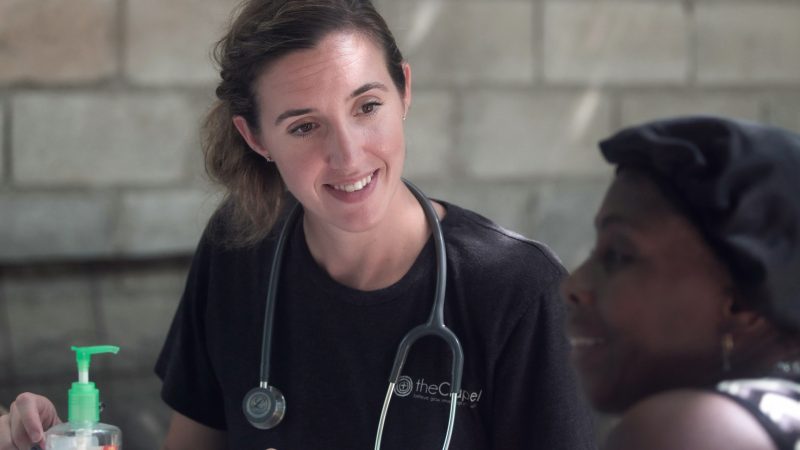A medical scribe is a specialized professional who supports healthcare providers by documenting patient encounters, medical histories, test results, and treatment plans in real-time during patient visits. Their role is crucial for improving the efficiency of healthcare practices by ensuring that physicians and other healthcare providers can focus on patient care rather than administrative tasks.
Medical scribes work in various healthcare settings, including hospitals, private practices, outpatient clinics, and emergency rooms. Their primary responsibility is to assist healthcare professionals in documenting all relevant information accurately and promptly during patient visits. This allows healthcare providers to concentrate on the patient without the distraction of taking detailed notes or entering data into electronic health records (EHR) systems.
A typical day for a medical scribe involves accompanying physicians during patient consultations and recording detailed information, such as the patient’s symptoms, medical history, physical examination findings, diagnoses, treatment plans, and any follow-up actions. Scribes also help with tasks like entering lab results, updating medical records, and ensuring that patient information is accurately recorded in the EHR system. The ultimate goal of a medical scribe is to ensure that the physician has accurate, up-to-date documentation, which helps improve patient care and streamline administrative processes.
The role of a medical scribe is increasingly popular due to the growing use of electronic health records (EHR) in healthcare facilities. As healthcare providers navigate the complex world of EHRs, the demand for skilled medical scribes has surged. These professionals have become an essential part of healthcare teams, reducing the burden of administrative tasks and allowing clinicians to focus on what they do best: providing care.
How to Pursue a Career as a Medical Scribe
If you are considering pursuing a career as a medical scribe, there are several steps to follow to get started. This profession is an excellent opportunity for individuals interested in healthcare but not necessarily seeking a medical degree. A medical scribe position allows individuals to gain valuable experience in a clinical setting, which can be beneficial for those looking to apply to medical or nursing school in the future. Here are the key steps to becoming a medical scribe:
1. Educational Requirements and Skills
While a formal education beyond high school is not always required to become a medical scribe, having a solid foundation in medical terminology, anatomy, and physiology is essential. Some employers may require a high school diploma or equivalent, while others may prefer candidates who have completed courses in healthcare, medical terminology, or anatomy. Many medical scribes come from backgrounds in biology, health sciences, or other related fields.
In addition to educational requirements, medical scribes must possess a variety of key skills. Attention to detail, the ability to multitask, and excellent communication skills are essential in this role. A medical scribe must be able to listen attentively to healthcare providers, document information accurately, and maintain a clear and organized system for recording patient data. Proficiency with EHR systems is also a must, as scribes frequently interact with these tools to enter and update patient information.
2. Training Programs
Although some medical scribe positions may be open to candidates without prior experience, many employers prefer to hire individuals who have completed formal training programs. These programs are typically short-term and may be offered by universities, online platforms, or healthcare organizations. Scribe training programs cover key topics such as medical terminology, documentation practices, healthcare laws and ethics, and the use of EHR systems.
Training programs are an excellent way for aspiring medical scribes to gain the foundational knowledge required for the job. Many programs also offer practical experience through internships or on-the-job training, which is invaluable for gaining hands-on experience in a clinical setting.
3. Certifications
While certification is not always a requirement for medical scribes, it can enhance your job prospects and make you a more competitive candidate. The American Healthcare Documentation Professionals Group (AHDPG) offers a certification exam for medical scribes, known as the Certified Medical Scribe Specialist (CMSS) credential. Earning this certification demonstrates your proficiency in medical documentation and your commitment to the profession.
Additionally, there are certifications available for specific types of scribes, such as those specializing in emergency medicine or cardiology. These certifications can open doors to specialized roles within the medical scribe field.
Searching for a Job as a Medical Scribe
The process of finding a job as a medical scribe is similar to searching for other healthcare positions. It involves networking, applying to job postings, and preparing for interviews. Here’s how to search for a medical scribe position and increase your chances of securing the job:
1. Start with Job Portals
Many job portals, such as Indeed, Glassdoor, and LinkedIn, feature job listings for medical scribes. Simply searching for “medical scribe” or “scribe jobs” will yield numerous job opportunities across various healthcare settings. Make sure to filter job listings based on location, as many medical scribe positions are available nationwide, especially in larger metropolitan areas.
2. Consider Healthcare Staffing Agencies
Several healthcare staffing agencies specialize in placing medical scribes in healthcare facilities. Agencies such as ScribeAmerica are known for their robust training programs and extensive job placements across the United States. ScribeAmerica is one of the largest and most well-known companies in the industry, offering employment opportunities for medical scribes in hospitals, physician offices, and urgent care centers. Working with an agency like ScribeAmerica can provide access to a network of job opportunities and offer structured training and support as you begin your career.
3. Networking and Referrals
Networking can be an effective way to find medical scribe positions. Reach out to professionals in the healthcare industry, attend industry events or conferences, and join online groups or forums dedicated to medical scribes. Many job openings are filled through referrals, so don’t be afraid to ask for recommendations from colleagues or mentors in the field.
4. Company Websites
Many healthcare organizations and medical practices post job openings for medical scribes on their websites. If there is a specific facility you are interested in working for, visit their careers page and look for scribe-related job listings. Hospitals and outpatient clinics are some of the top employers of medical scribes, so it’s worth checking their websites regularly for job updates.
Benefits of Being a Medical Scribe
Working as a medical scribe offers several benefits for those looking to start a career in healthcare or gain valuable clinical experience. Some of the key advantages include:
-
Hands-on Experience: As a medical scribe, you will gain direct exposure to patient care, medical procedures, and healthcare systems. This experience can be invaluable for those pursuing careers as doctors, nurses, or other healthcare professionals.
-
Opportunities for Career Advancement: Many medical scribes eventually transition into other healthcare roles, such as physician assistants, nurse practitioners, or medical doctors. The experience gained as a scribe can serve as a stepping stone for these careers.
-
Flexible Work Hours: Many medical scribe positions offer flexible schedules, making it easier for individuals to work part-time or full-time. Some positions also offer night shifts or weekend hours, providing further flexibility.
-
Competitive Pay: While pay for medical scribes can vary by location and experience level, the role generally offers competitive wages, especially for individuals with specialized training or certifications.
Conclusion
Becoming a medical scribe is an excellent career choice for those interested in the healthcare field who may not want to pursue medical school but still wish to contribute to patient care. With the growing demand for skilled professionals to assist healthcare providers with documentation, the job prospects for medical scribes are strong. By obtaining the right education, training, and certifications, and applying through job portals or healthcare staffing agencies like ScribeAmerica, you can begin your journey toward becoming a highly valued member of the healthcare team.










